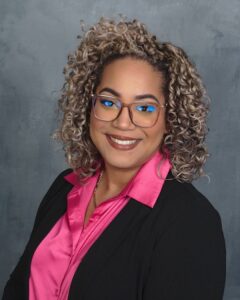On any given day, there can be 1,700 children and teenagers in foster care in Central Florida. Most have been disappointed and let down by the adults in their lives, and many have been displaced from the homes, schools and neighborhoods most familiar to them. All have a long journey ahead to find acceptance and learn to forgive.
As a child welfare professional, part of my mission is to find better ways to help heal these broken hearts and homes in our community. While we work around the clock to help struggling families and children, it can often feel like we’re taking two steps back for every step forward.
Finding true forgiveness and healing for a youth who has experienced a disrupted childhood happens when they’re with a stable and loving family – however they define the word “family.” It can be a blood relative or not: a teacher, grandparent, neighbor or other trusted adult. Most of all, they need to be somewhere they feel like they belong.
Whenever possible, it’s essential that we work with the family as a whole – helping them access critical resources and rehabilitation before the child’s home situation reaches a breaking point. Not giving up on the family; getting parents the help they need, while keeping the child safely in his or her own home, is often the best thing we can do for the child’s long-term well-being.
When out-of-home care is unavoidable, we need to do more to place kids within the communities, schools and neighborhoods they’re familiar with. Sometimes we can do that through kinship care placements (with a grandparent, aunt or uncle, or other relative), or by finding a trusted adult who already has a strong relationship with the child, such as a teacher. More foster caregivers – and especially diverse foster homes who reflect the child’s own culture – are also critical.
Finally, we need broader understanding of the signs and symptoms of trauma. Working with kids and teens in the foster care system can be challenging – they’re angry, they’re lashing out and they will be brutally harsh with you. It can take months to break through to a kid, but we can’t give up on them either. As a clinician, it’s incredibly heartbreaking to witness adults, even therapists, walk away from young people who need to know they are seen, that they matter, and that we have their backs.
All teens struggle with the angst, hormones and the anxiety of growing up, and those in foster care have the added burden of separation, isolation and trauma. That’s why we need to work twice as hard – and get creative – to break through to them, until they can acknowledge what they’ve been through and ask for help.
In my own life, I’ve come to understand that sometimes “forgiveness” means “forgive, but don’t forget.” That’s also true for children in care. Past experiences are a part of us, but they don’t define us – and it’s in finding acceptance that we can finally move forward.
Julia Eusebio, MSW, Registered Clinical Social Work Intern, is a Clinical UM Manager with Embrace Families, the lead nonprofit agency overseeing child welfare in Orange, Osceola and Seminole counties in Central Florida.



